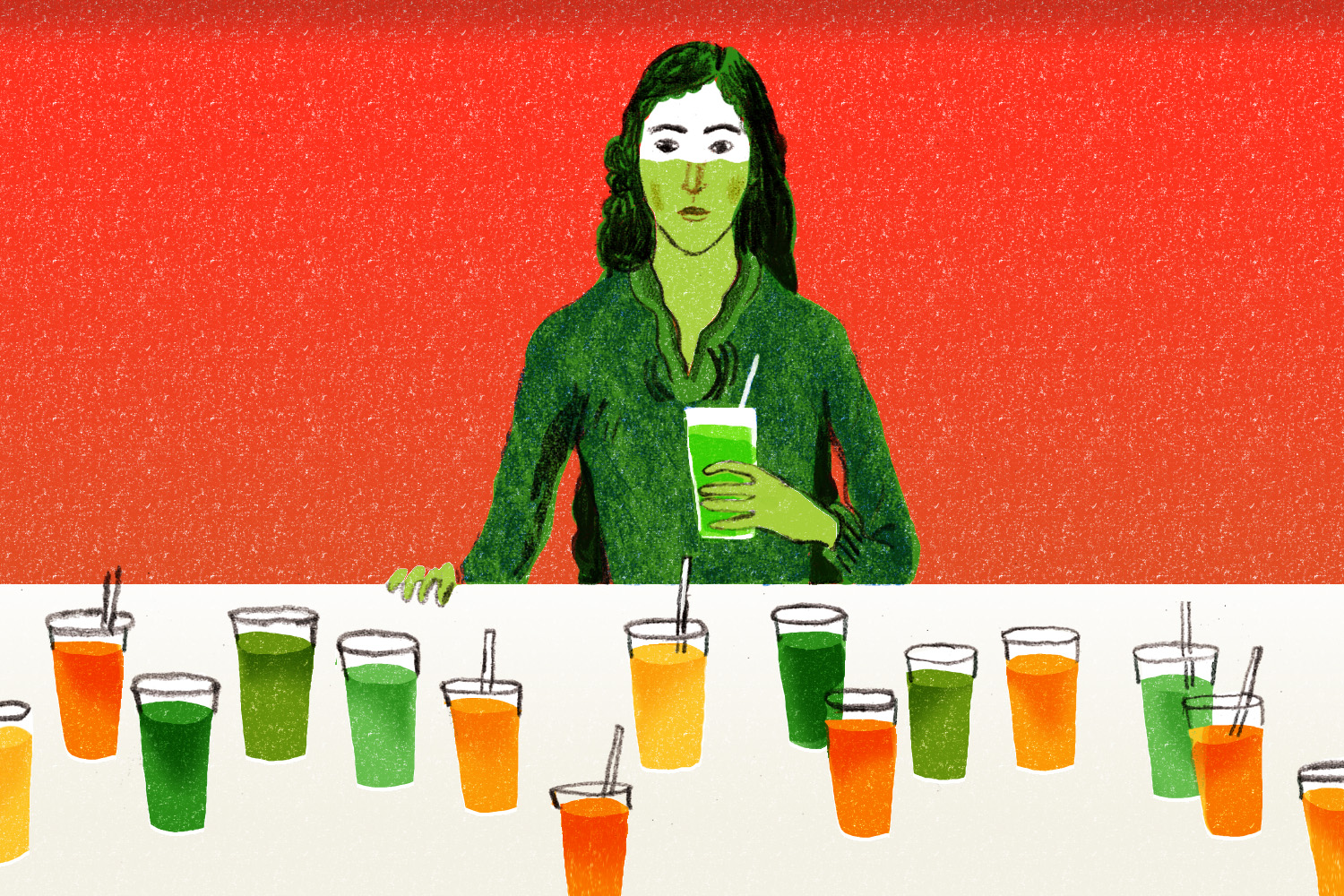
Skip the lemon water and extravagant juices. Peculiar potions and potables that claim to “detoxify” your body are just the latest reincarnations of snake oil.
“I always look for science to inform my recommendations,” says Dr. Joy Dubost, a dietitian, food scientist and spokesperson for the Academy of Nutrition and Dietetics. “But to date, there’s no solid science backing any of these cleansing or detox approaches for weight loss or health.”
Of course, the word “cleanse” has been applied to a huge range of diets, from those that replace one or two daily meals with fruit smoothies to the more extreme types that advocate drinking little more than spiced water for a week or longer. The extreme kind—those that could never permanently supplant a normal diet—don’t tend to have long-lasting effects.
Not only is the hard science on cleanse diets missing, but Dubost also says the premise underlying these drinks—that you can somehow flush your system of pollutants—doesn’t pass a basic sniff test. “Your body has built-in mechanisms for detoxification, including your liver, kidneys, and gastrointestinal system,” she says. “Swallowing some kind of solution isn’t going to further enable those organs, so the whole premise of detoxifying is inaccurate.”
“I’ve also never seen an explanation for what ‘cleanse’ or ‘detox’ diets are cleansing or detoxifying your body of,” Dubost adds. “I think the vagueness there may be part of the appeal.”
Put another way, if you’re eating a healthy diet packed with fruits, vegetables, whole grains and lean protein—the kind of sustainable diet that will help keep your weight down and lower your risk for many diseases—your body has no use for any radical detoxification measures. And if your diet is poor, pounding juice for a week isn’t going to do you any good.
“You’ll drop some water weight on these cleanses because you won’t be consuming very many calories,” Dubost says. “But that weight will come back when you start eating again.” The kind of severe calorie restriction associated with cleanse diets can also lead to muscle breakdown and feelings of extreme fatigue, as well as headaches, irritability, cramping and diarrhea.
But what about those people who say they just feel amazing after completing a cleanse? Dr. Fabrizio Benedetti, a professor of neurophysiology at University of Turin Medical School in Italy, has written books about the placebo effect. “Feelings, perceptions, and a sense of well-being are very much influenced by placebos,” he says.
Benedetti cites a recent milkshake study from Yale University. During the study, researchers gave people a milkshake and told them it was either a 620-calorie “indulgent” shake or a 140-calorie “sensible” shake. Although all the milkshakes were identical, hunger-producing hormone levels plummeted in the “indulgent” milkshake sippers, but remained elevated among the “sensible” shake group. In other words, mind outweighed milkshake when it came to people’s hunger.
“We see placebo effects in the world of health science all the time,” Dubost says. “The mind is powerful, and I think it plays a big role for people who feel like going to diet extremes will offer them more benefits.”
All that said, Dubost admits she can see one potential benefit to cleanse diets. “Some people like ‘flipping the switch,’ or doing something extreme to kick start a new eating plan,” she says. If you know your diet isn’t great and you want to make a change, doing something a little over the top to initiate a hard break or “reset” from your old ways could put you in the right mindset to stick with a healthier eating routine, she says.
Like using the start of the New Year as motivation to change your life, initiating a cleanse for a few days before adopting a healthier well-rounded diet could have some psychological benefit, Dubost says. But again, that cleanse won’t be doing your health any favors.
“It’s amazing what people put their bodies through for a quick fix,” Dubost says. “If they’d put that kind of energy into a less-restrictive, more-sustainable diet, they’d have a lot more long-term success.”
Read next: You Asked: What’s the Best Way to Whiten My Teeth?
More Must-Reads From TIME
- Dua Lipa Manifested All of This
- Exclusive: Google Workers Revolt Over $1.2 Billion Contract With Israel
- Stop Looking for Your Forever Home
- The Sympathizer Counters 50 Years of Hollywood Vietnam War Narratives
- The Bliss of Seeing the Eclipse From Cleveland
- Hormonal Birth Control Doesn’t Deserve Its Bad Reputation
- The Best TV Shows to Watch on Peacock
- Want Weekly Recs on What to Watch, Read, and More? Sign Up for Worth Your Time
Contact us at letters@time.com